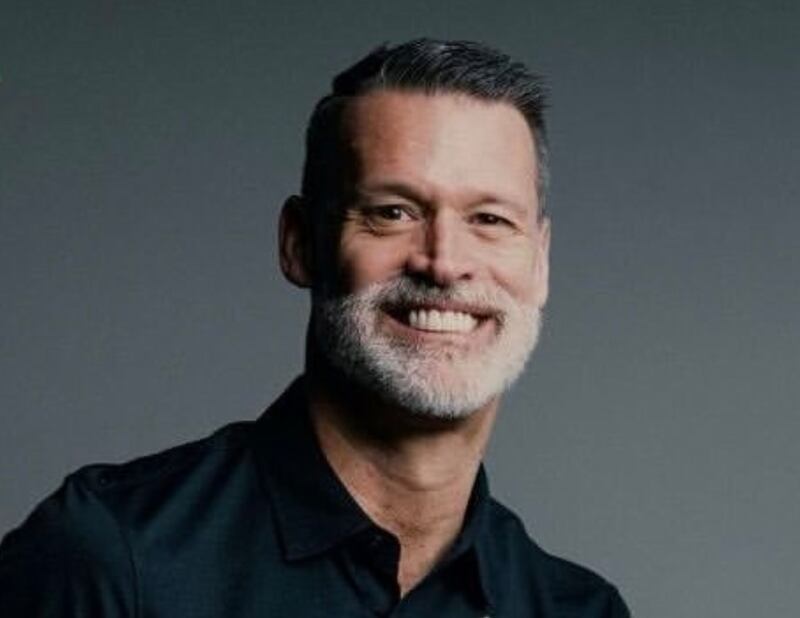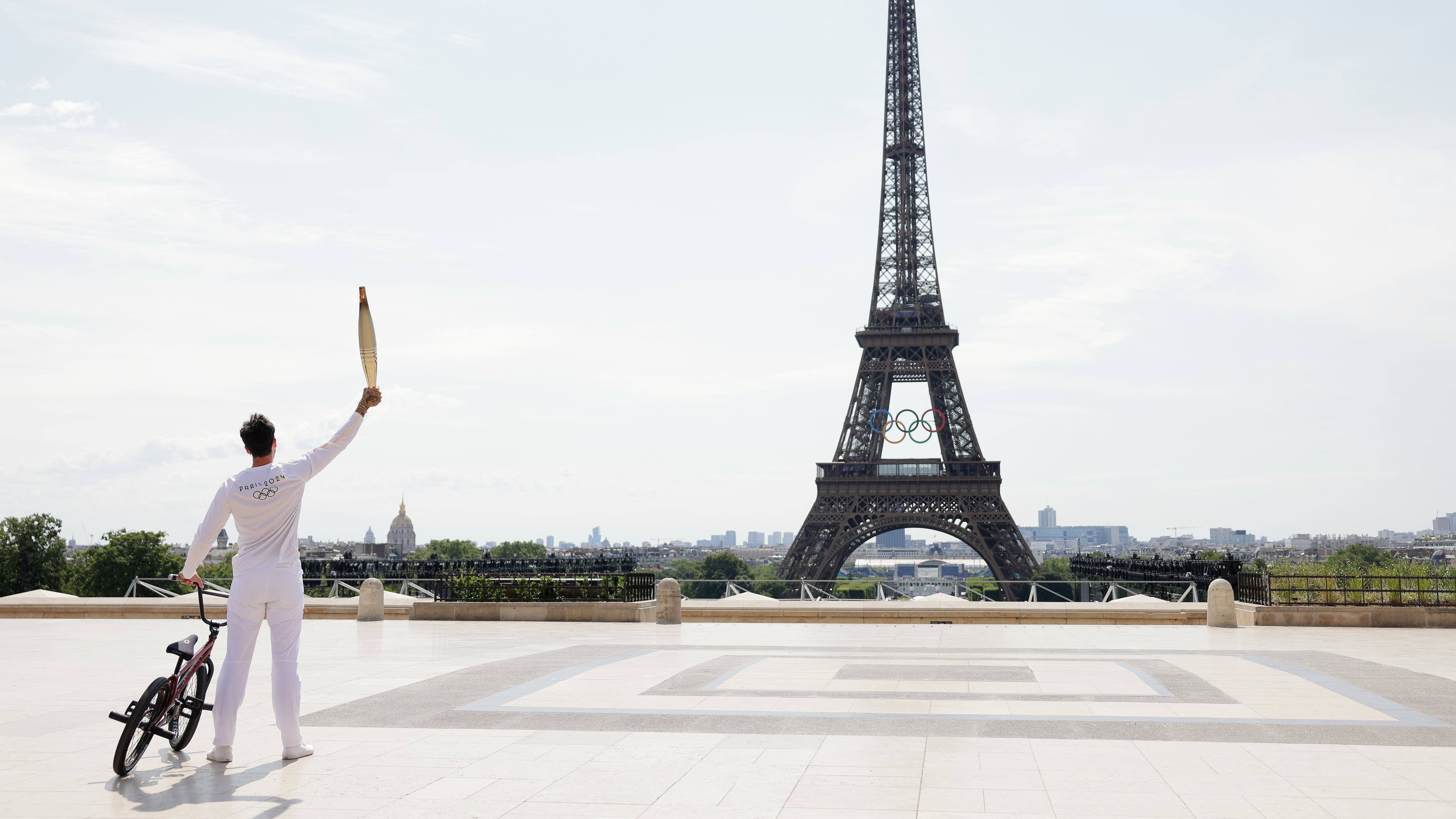There is no date that is not fulfilled, and it is time to make way for the Paris 2024 Olympic Games, which will take place in the French capital for the third time. According to the organizers, these games will have a cost of at least 8.2 billion dollars (USD) and could reach 10 billion dollars (USD).
PUBLICIDAD
This figure places these Games among the most expensive in history, only surpassed by Tokyo 2020 ($28 billion), Sochi 2014 ($21 billion), London 2012 ($15 billion), Rio 2016 ($13.7 billion), and Pyeongchang 2018 ($12.9 billion). The official figure for Beijing 2008 indicates that the event cost $6.5 billion, but it is estimated that the actual cost rose to $20 billion.
PUBLICIDAD
And what has Paris 2024 prepared for the world? According to the organizing committee, innovation is focused on four axes: more youthful, urban, inclusive, and sustainable Olympic Games.
In that sense, they point out that skateboarding, surfing, sport climbing, freestyle BMX, and 3x3 basketball remain in the program after their Olympic debut in Tokyo 2020, and that this time they are incorporating breaking or breakdancing.
Regarding the second objective, the organizers emphasize that "the benefits of sports have to be taken to where people are in the cities and their urban areas." On this occasion, Paris 2024 decided that the traditional parade of countries will take place on boats along the Seine River towards the Eiffel Tower. Likewise, they decided to organize many events on the streets and iconic sites of Paris.
It is worth mentioning that about 45,000 volunteers will help make the XXIII Olympic Games a success.
More inclusive and more sustainable
In terms of inclusion, the motto of Paris 2024, "Wide open Games", reflects the goal of ensuring that everyone fully enjoys the Olympic experience, generating a positive social impact. They will be the first Games with gender equality: half of the 10,600 sports spots are for women. Additionally, there is a record of 20 mixed events, and the women's marathon will replace the men's as the traditional closing event of the Games.
Finally, these are Olympic Games fully aligned with the Olympic Agenda 2020, which aims to make each edition more sustainable than the previous ones. Therefore, Paris 2024 has committed to reducing carbon emissions by half compared to London 2012 and Rio 2016, as well as aligning with the Paris Agreement on Climate Change.
This implies the planning of all necessary resources to carry out the Games, with the aim of controlling their life cycle before, during, and after the event. For example, 75% of all sports equipment will be rented or borrowed. Likewise, Paris 2024 will be entirely powered by renewable energy. And 95% of the 35 competition venues are pre-existing or temporary (the latter designed to reduce their environmental impact).
The website earthday.org points out that the Tokyo 2020 and Rio 2016 games released over 2.7 million and 4.5 million tons of carbon emissions into the atmosphere, respectively, and that we will have to wait and see if the proposals and initiatives of Paris 2024 go beyond greenwashing.
We had the opportunity to chat with Chilean journalist Ángel Rojas Escamilla, who writes about topics such as the dark side of tourism and international events, and who arrived in Paris weeks before the Games. In this regard, he mentioned having noticed areas of opportunity, especially in terms of insecurity in tourist areas, excessive increase in costs, and social inequality.
"Although the facilities I have visited seem ready, I notice a contrast with the surrounding areas, many of which still need attention. There is an Olympic atmosphere, but it seems like an attempt by the city to mask the problems. A lot of advertising and decorations cannot hide certain challenges that residents and visitors face," he stated.
In conclusion, he pointed out that the innovations of Paris 2024 sound good in theory, but they could be more marketing than reality, emphasizing that the true test will be if these ideals are effectively implemented and do not remain as empty promises.

Latin America has hosted the Olympic Games twice. How do those Games compare to Paris 2024?
Mexico 1968: First Games in Latin America, in a Spanish-speaking country, to use a tartan track for athletics, to have electronic timing, and to have anti-doping controls. 5,516 athletes (781 women) from 112 countries participated in 20 sports. Cost: 176 million dollars.
Rio de Janeiro 2016: First Games in South America and third in the Southern Hemisphere (after Melbourne 1956 and Sydney 2000). 11,180 athletes participated (5,034 women) from 207 countries, in 28 sports. Cost: 13.7 billion USD.
Paris 2024: Second city to host the Olympics three times (1900, 1924, 2024), after London (1908, 1948, 2012). 10,600 athletes are participating (5,800 women), from 206 countries, in 32 sports. Cost: over 8.2 billion dollars.

4 QUESTIONS to Yelena Davydova, Olympic Champion (Soviet Union)
MWN: What do you remember and value the most about your Olympic Games - 44 years after Moscow 1980?
— Participating in the Olympic Games fulfills the greatest dream of an athlete, and I felt very proud to have competed very successfully in that edition.
I remember the Olympic Games as a different experience from any other competition. The atmosphere was electrifying, full of joy and unity among athletes from different sports and countries. We had unparalleled support from the fans, and it was amazing to share this experience with so many famous and talented athletes.
The athletes' village was a very special place, where athletes from different cultures gathered, making new friendships in an atmosphere of camaraderie. Everything was unforgettable. Competing for my country was an immense source of pride and a great honor.
How have the Olympic Games changed in recent decades?
— In my opinion, the atmosphere was more patriotic during my time, in an authentic sense, and less influenced by commercialism and politics. However, the essence of the Olympic Games remains.
On the other hand, the Olympic Games have become more inclusive and diverse, showcasing a wider range of sports and athletes. Technological advancements have improved the viewing experience, bringing fans closer to the action with high-definition broadcasts and real-time updates.
What advice would you give to someone who is about to experience their first Olympic Games?
— My advice would be to make the most of every moment and immerse yourselves in the experience. I would tell you to focus on your preparation, stay grounded, and take the time to enjoy the event in its entirety.
Interacting with other athletes is important, learning from their experiences and making lasting friendships. Remember that the Olympic Games are not just about the competitions; they also involve celebrating sportsmanship, resilience, unity, and camaraderie.
About those moments for which they have been preparing for years, it is important that they trust in their training and in themselves, always maintaining a positive attitude while giving their best effort.
Finally, treasure every moment and live the experience to the fullest. It is a special opportunity that life gives you, and an experience for which you have worked very hard.
Can the Olympic Games help build a better world?
— The Olympic Games must always serve as a unifying event that brings together people and nations in a spirit of peace and fair competition. It is essential that the Olympic Games remain free from political issues, emphasizing positive interaction between countries and the celebration of athletic achievements on a global stage. The Olympic values of excellence, friendship, and respect can serve as a model for society.
* In Moscow 1980, Yelena Davydova won two gold medals and one bronze in artistic gymnastics representing the Soviet Union.

4 QUESTIONS to Mark Tewksbury, Olympic Champion (Canada)
MWN: What do you remember and value the most from your Olympic Games?
— My Olympic experience spanned two Games, Seoul 1988 and Barcelona 1992. Seoul was a very difficult competition for me, with a somewhat disappointing performance. I felt overwhelmed, exhausted, and nervous, everything you don't want to feel when the situation demands peak performance.
Barcelona was quite the opposite, as I felt comfortable in the city and ready for the experience. I was in perfect shape and dropped more than a second to win the 100-meter backstroke. When I saw my name flash on the screen before any other name, I knew I had won. It was an exciting and shocking moment, as it was unexpected for me to win.
How have the Olympic Games changed in recent decades?
"I think that social media has changed them a lot. I know athletes better nowadays, as they are not only featured in the media once every four years. There are also new sports that reflect the current world, but essentially the Olympic Games have not changed. That is part of their magic."
What advice would you give to someone who is about to experience their first Olympics?
— Breathe! Remember how lucky you are to be at the Paris 2024 Olympic Games! Enjoy socializing with people from all over the world in the cafeteria and, very importantly, bring your own pillow!
Can the Olympic Games help build a better world?
The best example in Paris 2024 is the Refugee Team. These incredible athletes have been displaced from their homes, but they come together under the Olympic flag and truly represent the best of what the Olympic Games are: uniting the world in a peaceful way to compete.
In addition to the gold medal he won in swimming in Barcelona 1992, Mark Tewksbury also won a silver and a bronze medal in Seoul 1988.
